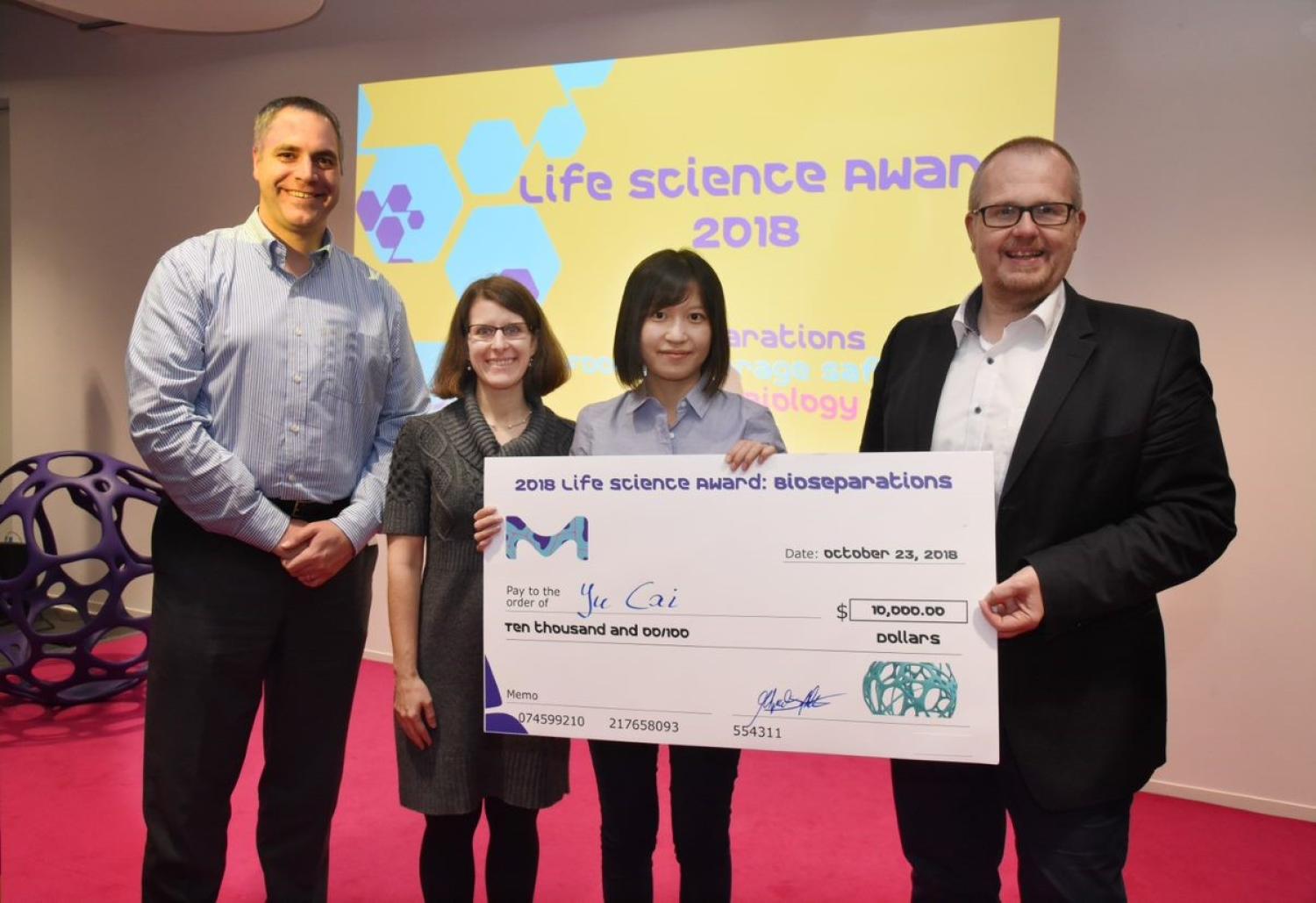Yu Cai earns grand prize for innovative research in bioseparations field

Yu Cai, a former graduate student at the Department of Chemical and Biological Engineering, was the grand prize winner for bioseparations research at the 2018 Life Science Awards held in Darmstadt, Germany this past October.
Bioseparations is the practice of separating or purifying chemical reaction products involving living organisms.
The Life Science Awards recognize graduate students conducting innovative, impactful research in the life sciences. Cai received the $10,000 grand prize for her research on real-time observations of nanoparticles in filtration membranes.
Cai developed a super-resolution nanoparticle approach to study how mass moves through filtration membranes and to better understand how those membranes function.
"This approach permits real-time observations of particle behaviors while they are flowing through membranes, so that we are studying separation processes using actual particle trajectories, and we can attain direct information of membrane structure, transport heterogeneity, fouling mechanisms [and more]," Cai said.
Cai was one of four students presenting bioseparations research to scientists from MilliporeSigma, a life sciences, biotechnology and pharmaceuticals supply and research company. MilliporeSigma organizes and sponsors the awards each year to encourage and develop graduate students who will pursue careers in the life sciences.
"In addition to presenting my work and communicating with other students and researchers, I had the chance to visit the labs and manufacturing plant in Merck," Cai said. "It was a refreshing experience for me to talk to people who work in industry and get to know which type of research they are interested in or what kind of problems they are trying to solve."
Two other graduate students received grand prizes in the fields of food and beverage safety and tumor biology. Twelve students total presented their research.
The highly competitive application process requires students to submit their curriculum vitae, a research and future plans statement, an abstract for a proposed presentation on the research and a recommendation letter from their advisor. The three grand prize winners received $10,000 each, while the other participants received $2,000 prizes.
"There’s definitely great potential in this technique as it can provide useful feedbacks for the design and optimization of separation processes including water purification, viral clearance and pharmaceutical manufacturing," Cai said of her award-winning research. "Our group is currently collaborating with a few leading companies in the separation-filtration industry, and we will continue to utilize this technique to address interesting and challenging questions that are relevant to industrial processes."
Cai's research advisor was Professor Daniel Schwartz.

